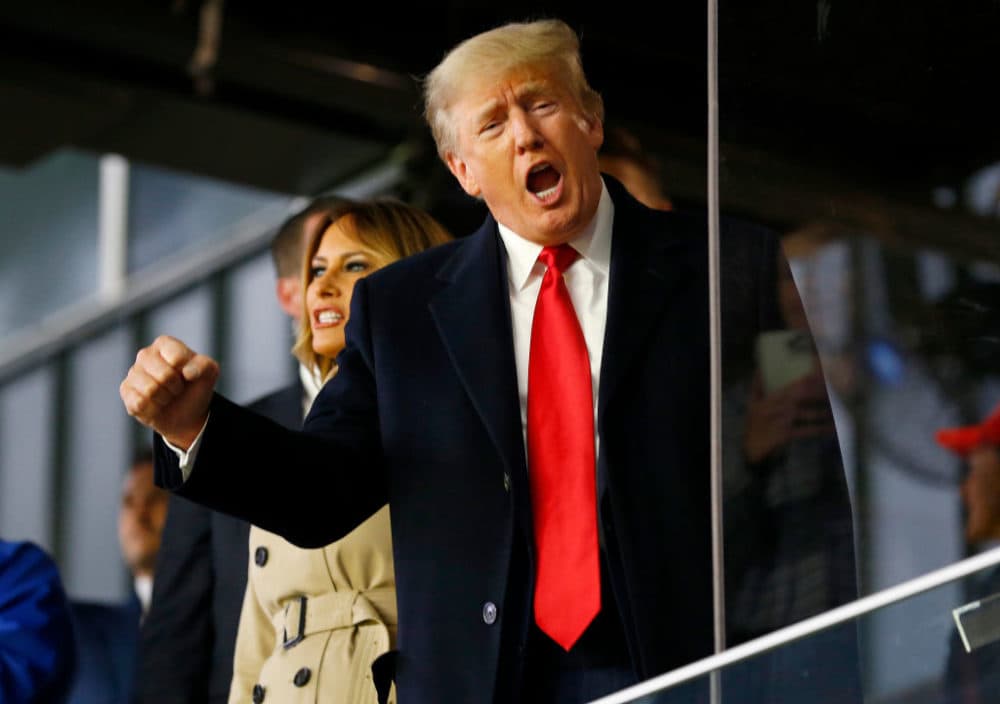Advertisement
Commentary
Yes, the media deserve criticism for the Steele dossier. But so does the GOP for touting Trump's 'Big Lie'

As a journalist for 40 years, I've made my share of mistakes and eaten correction crow. I once covered a New Hampshire school district meeting and quoted comments from a man across the cavernous auditorium whose ruddy complexion, graying-and-cropped hair and stocky build identified him to me, and in my story, as a prominent local businessman. Except he wasn’t that businessman, but rather a ruddy, graying-and-cropped, stocky, prominent local curmudgeon. Oops.
None of us likes to admit error, which may be why some media organizations seem in denial about hyperbolizing the Steele dossier, which is in the news again recently. This time for being largely discredited by two recent federal investigations.
If you don’t recall the dossier, brimming with purported dirt about 2016 candidate Donald Trump, you likely remember its most salacious claim: Trump had cavorted with prostitutes in a Russian hotel room to “defile” it (the Washington Post’s verb) after its use by the Obamas. The yuck factor was indisputable, less so the fact factor: the charge has never been confirmed.
To Trump supporters gloating that the MSM messed up, I say: You're right. And this: You’re messing up worse, for a similar — but deadlier – inability to confess error.
Unlike the Republicans’ error, the media’s Steele bungle did not trigger treasonous violence at the Capitol to overturn the people’s expressed will.
We’ll get to that momentarily. Let’s first avoid Trumpers’ default whataboutism and summarize why Axios calls the Steele dossier “one of the most egregious journalistic errors in modern history.”
The dossier was assembled by British spy Christopher Steele for a private intelligence firm aligned with Hillary Clinton’s 2016 presidential campaign. Earlier this month, Igor Danchenko, a Russian American who helped create the dossier, was indicted for allegedly lying to the FBI about how he got his information. He pleaded not guilty. But after the indictment, the Post corrected and excised parts of more than a half dozen stories about the dossier, going back to 2017.
The newspaper cited the indictment and “new reporting” that questioned whether businessman Sergei Millian, supposedly the source for the prostitute story, had in fact provided the information. Editors’ concern, according to the Post, is that the story actually might have been planted by “a Democratic Party operative with long-standing ties to Hillary Clinton.”
Advertisement
In part because of the dossier, the FBI surveilled Trump campaign aide Carter Page. The Justice Department later condemned the bureau’s failure to address doubts about the Steele information when it sought the court’s permission to watch Page.
In short, the Post publicly admitted: We goofed. Actually, it’s done much more. Eric Wemple, it’s media critic, has written a stream of stories about the unfolding dossier debacle for the media broadly. Alas, those stories cast some other outlets in less flattering light: MSNBC, CNN, Mother Jones and the McClatchy newspaper chain temporized when asked if they’d amend their reporting, most saying only that they’d review it in light of Danchenko’s indictment.
BuzzFeed News, which posted the entire dossier, told Axios that it would remain available on their website, with a note about the dossier’s errors and lack of verification. BuzzFeed won a suit in 2018 by arguing the FBI’s investigation into possible Trump-Russia collusion justified coverage of Steele’s investigation.
The estimable Rep. Adam Schiff, Democratic chairman of the House Intelligence Committee, gave the best defense of his and the media’s fixation on Steele:
“We couldn’t have known, of course, years ago that we would learn years later that someone who was a primary source lied to him. But … Steele did reveal that the Russians were trying to help elect Donald Trump. That turned out to be all too true. And in fact the Trump campaign chairman was giving internal campaign polling data to Russian intelligence while Russian intelligence was trying to help elect Donald Trump.”
The Trump campaign’s footsie with the Russians begins to explain the hypocrisy of gloating over the media’s Steele stumble.
The GOP has adopted the fascist-style tactic of claiming any election it loses is stolen, even claiming fraud before voting takes place.
Trump’s campaign behavior foretold his making the White House a non-stop scandal factory. The biggest scandal of all, eventuating in the Jan. 6 insurrection, was his “Big Lie” that the 2020 election was stolen. The falsehood is now affirmed by the Republican apparatus, from senators who “succumbed to the ‘big lie’” and recently blocked voting rights legislation, to state lawmakers undermining those rights.
The depressing result is that most rank-and-file Republicans believe the Big Lie. Even though more than 60 lawsuits challenging the election results were either bounced — some by Trump-appointed judges, including on the Supreme Court — or withdrawn by Trump’s own lawyers for lack of actionable evidence. Even though a Republican-backed review of Arizona’s pivotal vote found the winner to be Joe Biden.
The GOP has adopted the fascist-style tactic of claiming any election it loses is stolen, even claiming fraud before voting takes place. It’s par for the party’s default distrust of experts and institutions generally. Republican pols and voters are no different than some in the mainstream media in refusing to concede error.
Wait — there is one difference. Unlike the Republicans’ error, the media’s Steele bungle did not trigger treasonous violence at the Capitol to overturn the people’s expressed will.
To paraphrase William F. Buckley, it's not that media like the Washington Post — or scientists who've had to revise early ideas about COVID-19, or other institutions that err — are perfect, just better than those who never admit they're wrong. One is put in mind of an old saying about glass houses.
